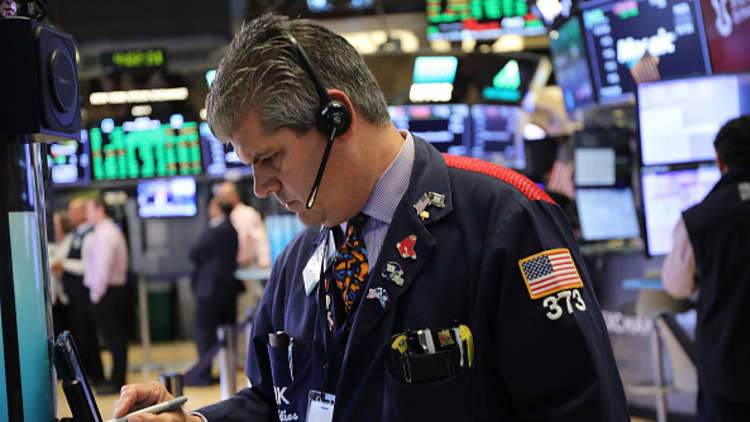
The best quarterly economic growth in four years may be "too good" and lead to an eventual drag on the stock market, Jim Paulsen told CNBC on Wednesday.
But you have to play "connect the dots" to get there.
Paulsen, chief investment strategist at Leuthold Group, said, "If we keep up anywhere close to 4 percent growth in the rest of this year, I just got to believe they're going to push ... [annual] inflation, wages, the 10-year yield all above 3 percent."
Those three factors could lead the Federal Reserve to raise interest rates at a more rapid rate, something that historically creates a headwind for the stock market. The Fed is expected to hike rates once, or maybe twice, before the end of the year. Central bankers already increased the cost of borrowing money in March and June.
"We're going to be struggling a little bit with good growth, but maybe too good," Paulsen said in a "Squawk Box" interview. "I do think the market is still going to have a struggle finding this silver lining, 'Goldilocks' path, because you could get either too hot or too cold in a hurry here this late in an economic cycle at full employment."
Paulsen's comments came after the government on Wednesday said the U.S. economy grew at a revised 4.2 percent annual rate in the second quarter, stronger than estimates and the initial report last month. That's the fastest growth rate since the third quarter of 2014.
President Donald Trump has made boosting the economy a cornerstone of his time in the White House and a benchmark of success for his economic policies, including corporate tax cuts and business deregulation but also a trade war with China and trade skirmishes with U.S. allies.
"I think trade has had less impact than we think on the market," Paulsen said. "You got to remember, the stock market collapsed in February because of a hot wage number and overheat concerns, not because of trade. And it's rallied all the way back up to highs long before we had a trade deal with Mexico."
The S&P 500 eclipsed its Jan. 26 intraday record last Tuesday, and then closed Friday, Monday and Tuesday at all-time highs.
The U.S. and Mexico on Monday reached a trade deal, paving the way to replace the 1994 North American Free Trade Agreement. Canada has since rejoined the talks to try to craft a new three-nation pact.
"If we could bring a new, better-for-the-United States deal between North America, that's going to put a lot of pressure on China, a lot of pressure on Europe. And it could literally lead to a much less restrictive global trade in the future," Paulsen said. "That's more a multiyear benefit than it is a 2018 or 2019 benefit."
Trump is pursuing new trade deals and concessions from China, the European Union, and other nations to change what he sees as unfair trading practices toward the U.S.


